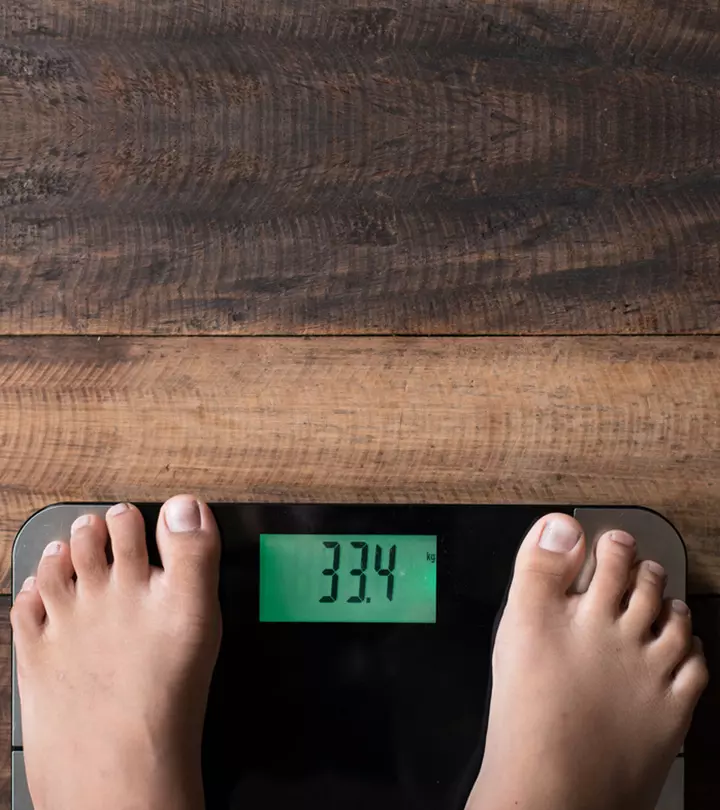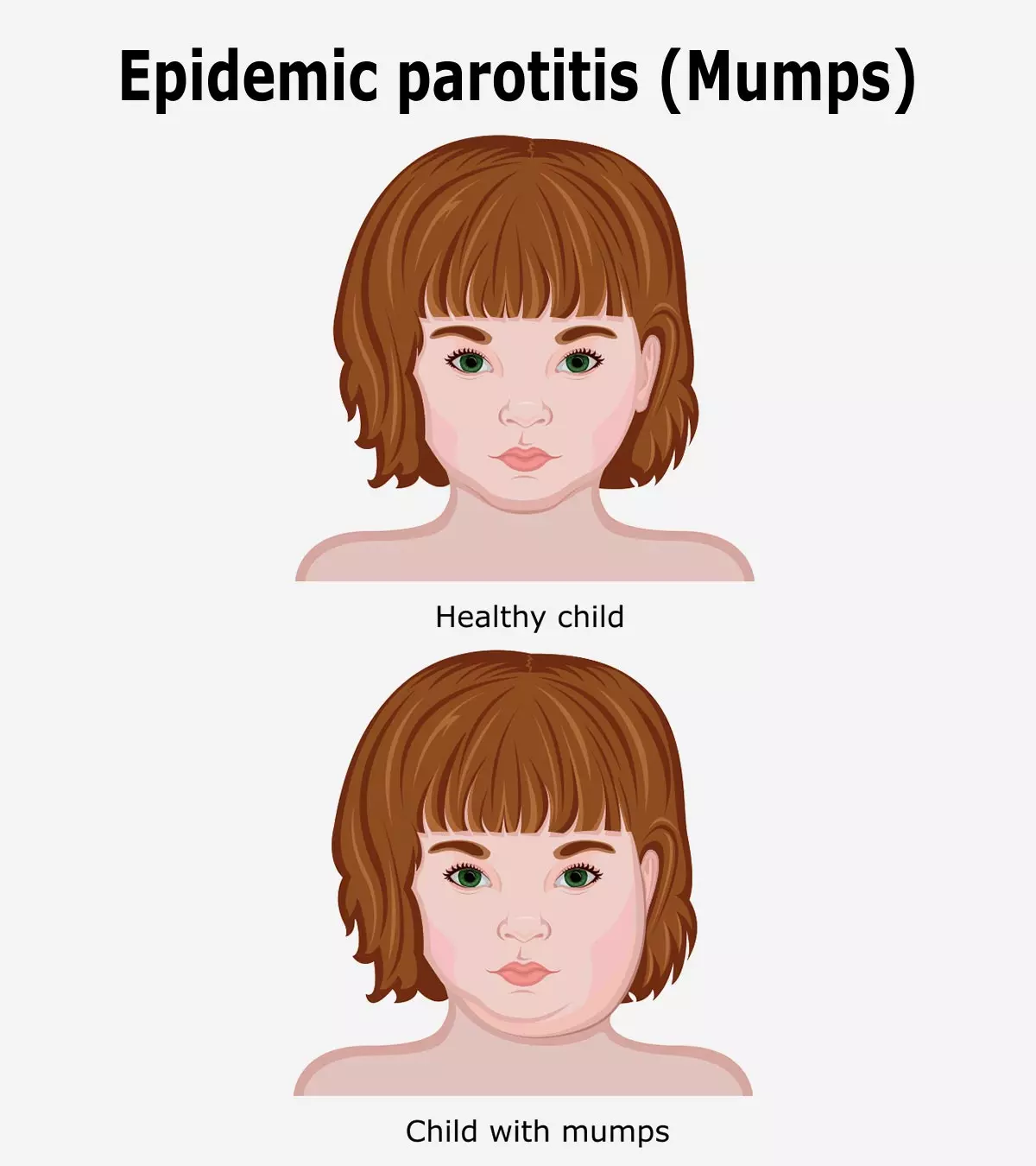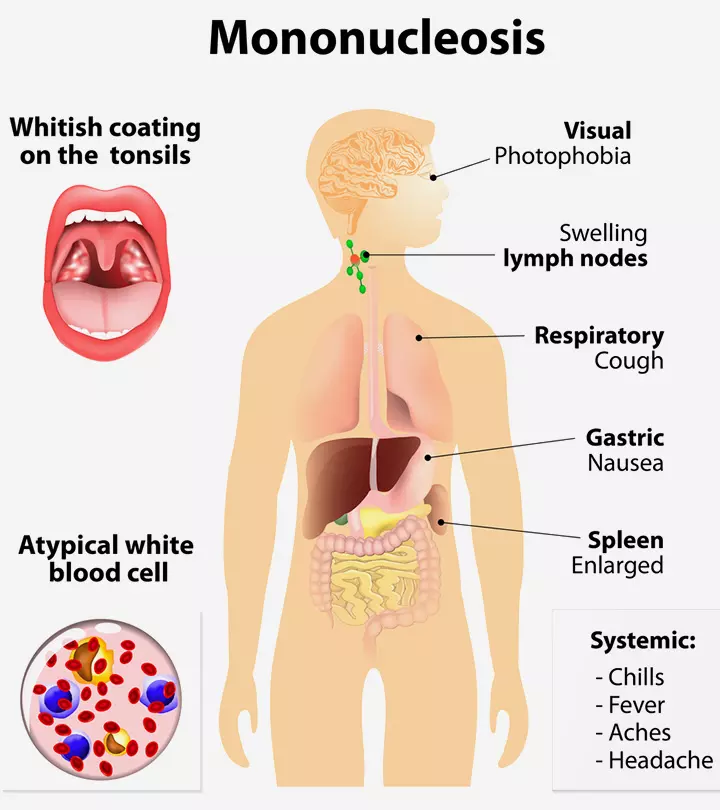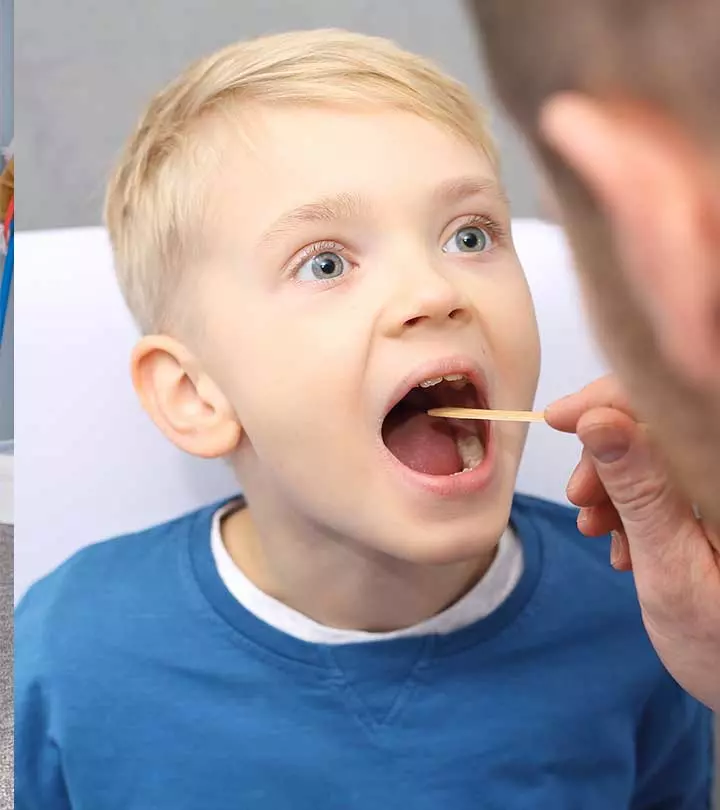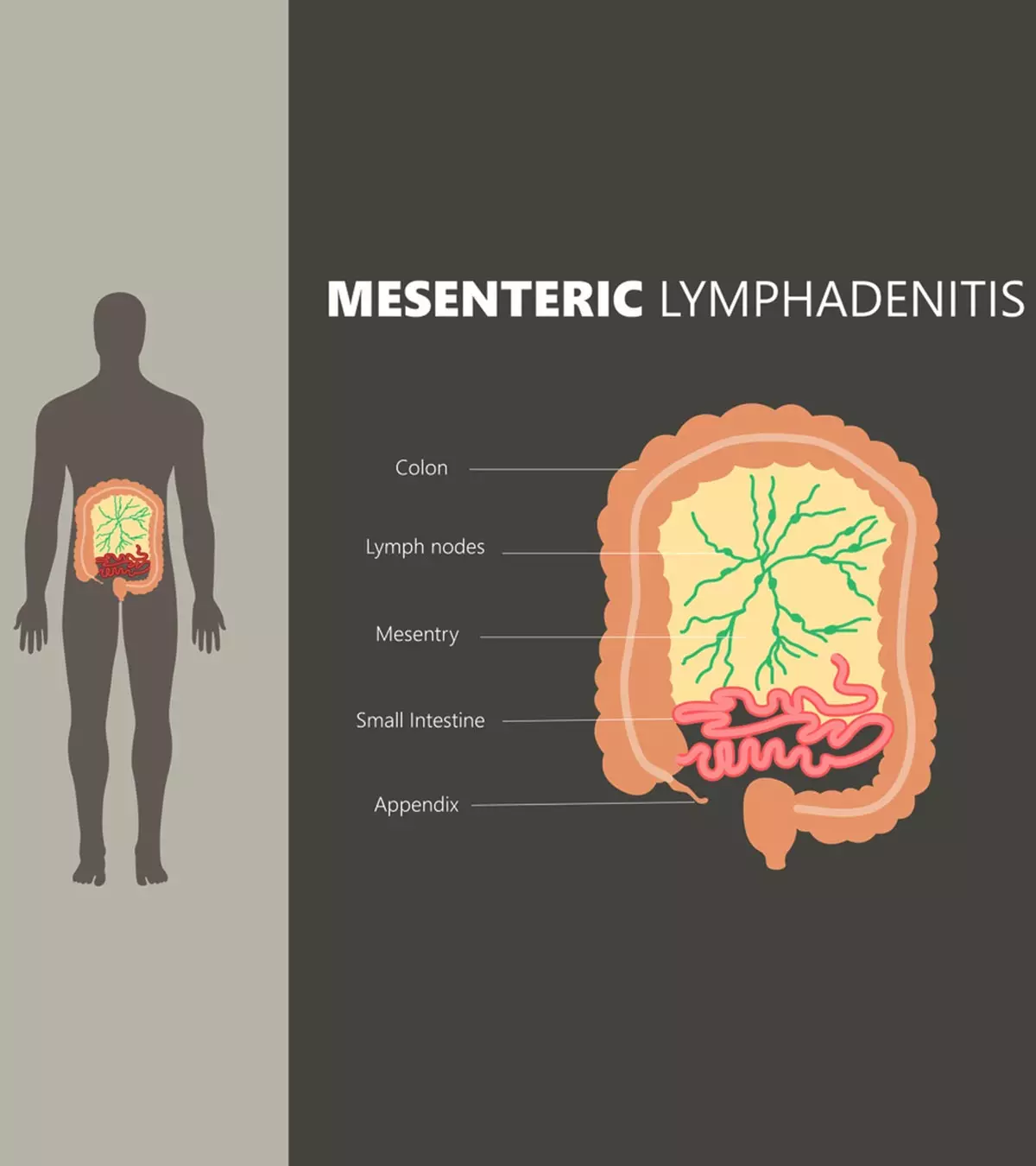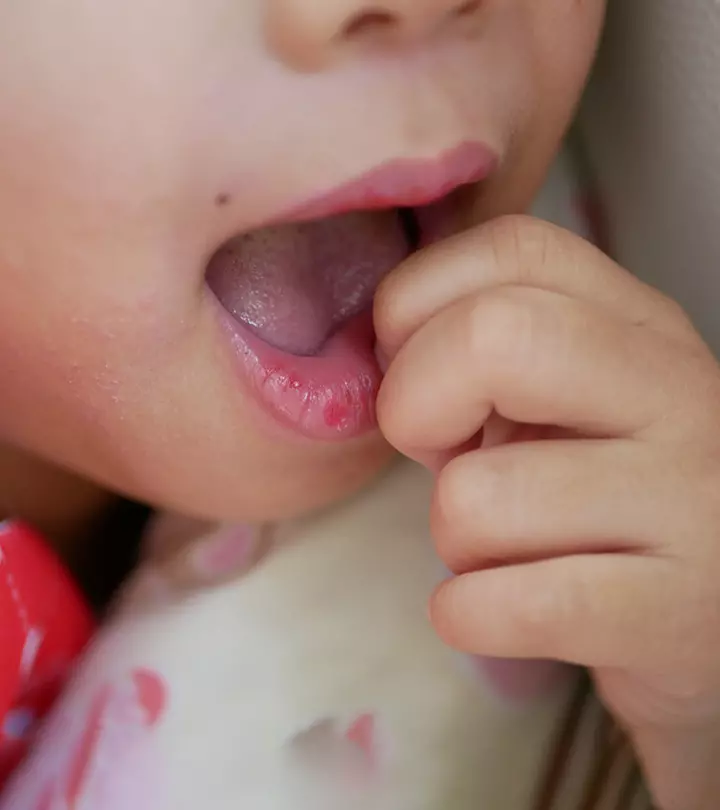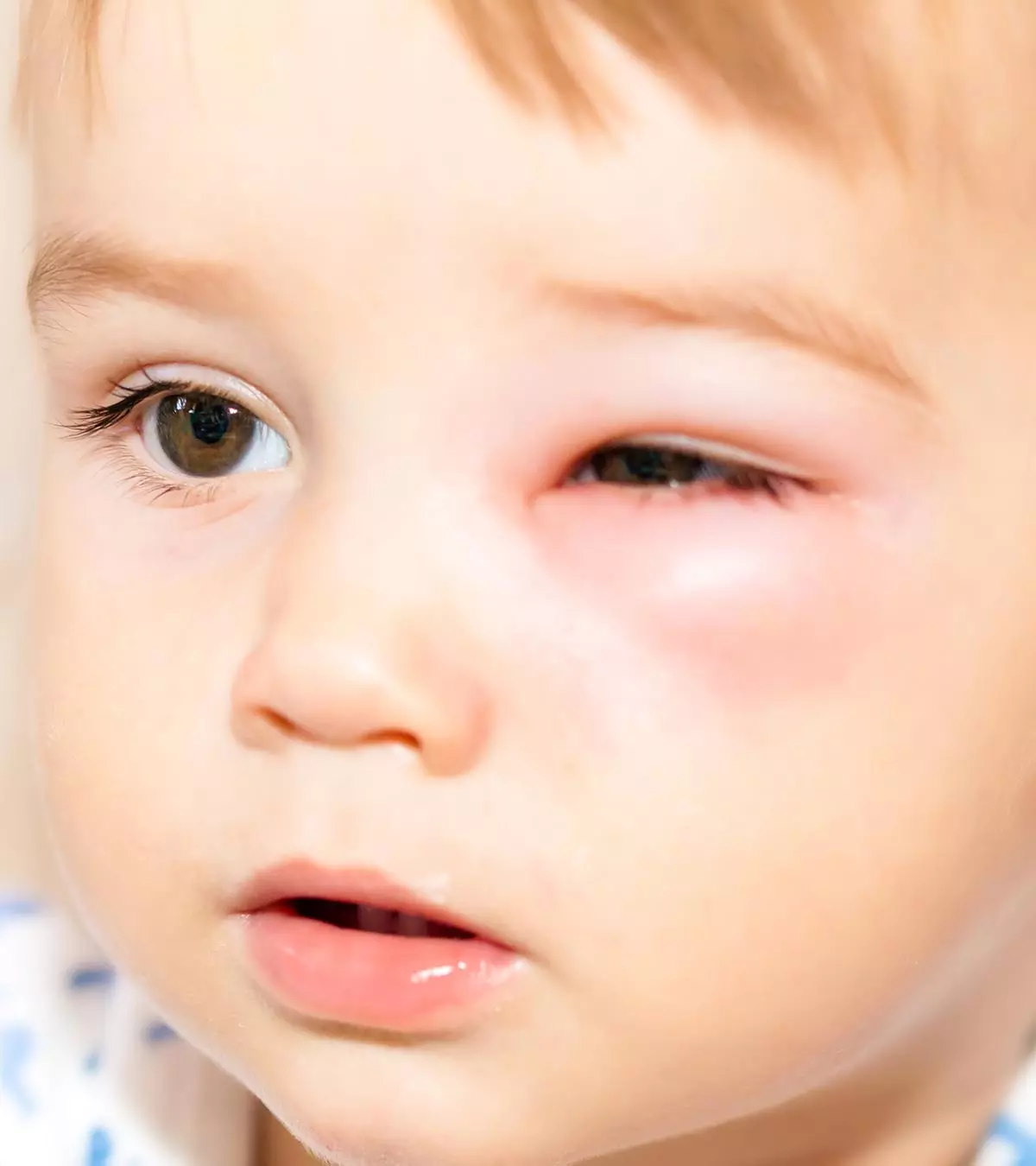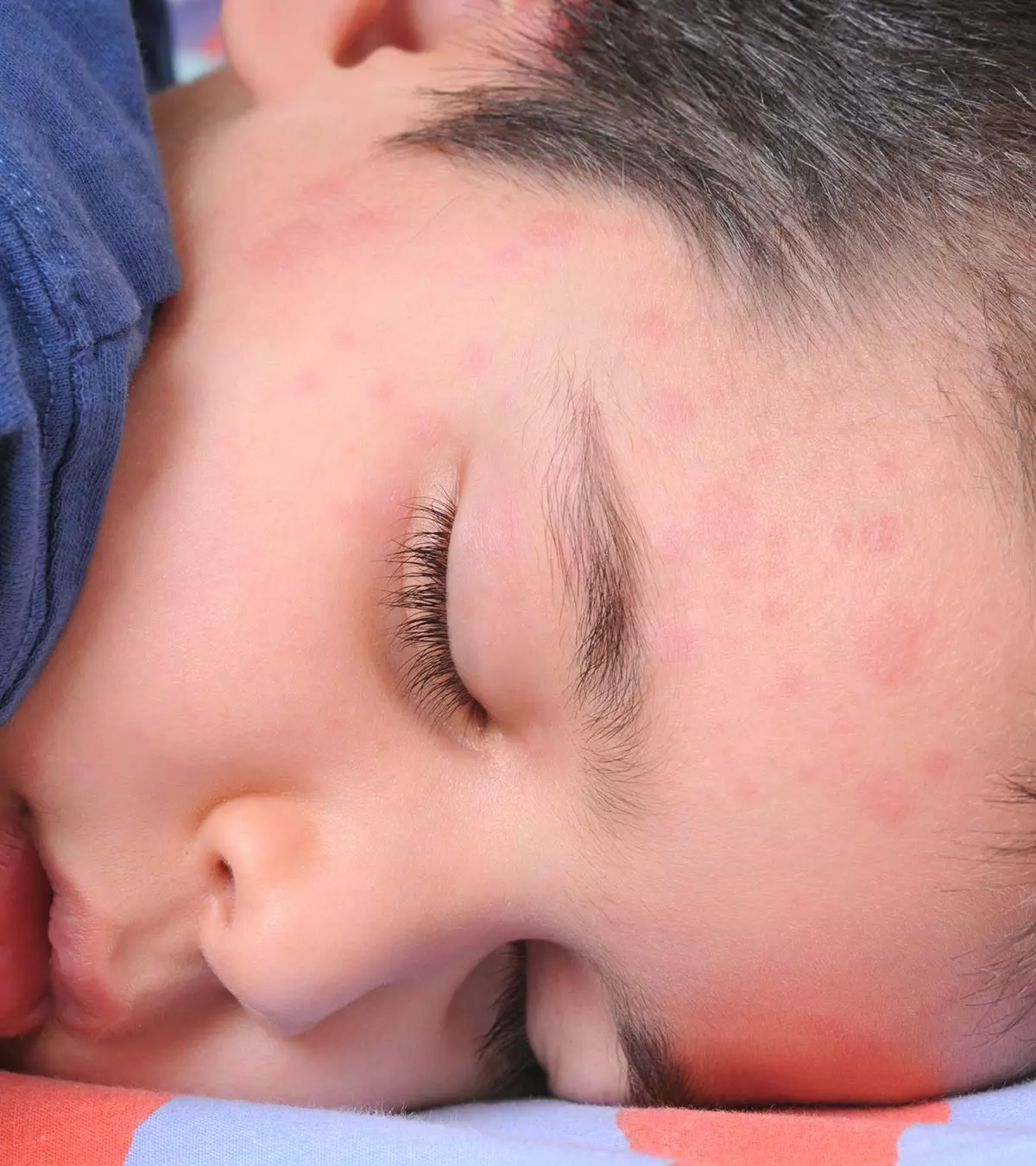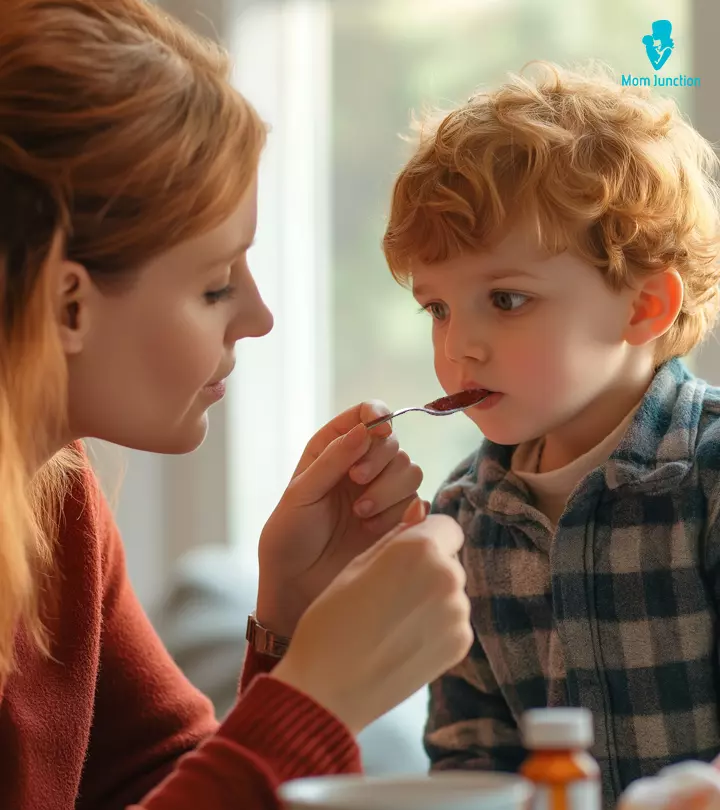
Image: Midjourney/ MomJunction Design Team
Antacids are medications that neutralize gastric acids by raising the pH of the stomach contents to relieve acid reflux and indigestion. You can use antacids for children to treat digestive issues, such as occasional regurgitationi of stomach contents , or chronic reflux conditions such as gastroesophageal reflux disease (GERD). They can be purchased over the counter in the form of syrups or chewable tablets (1) (2). However, doctor consultation before purchase is necessary as some antacids aren’t recommended for children under 12 years of age unless directed otherwise by the doctor (3).
Read on about different antacids you can use for children, their safety, and their side effects.
Key Pointers
- Antacids should not be given to children without a doctor’s prescription.
- They differ in their formulation and dosage for children of different ages.
- Although harmless, it may induce certain side effects such as diarrhea, nausea, vomiting, and headache, which require medical intervention.
- It is important to follow precautionary measures to prevent complications such as allergies, liver damage, and overdosing.
Can Children Take Antacids?

Image: IStock
Can kids have Tums? Yes, school age children and adolescents may be given certain antacids for short-term relief from symptoms. Since antacid medicines are available without a prescription, it is important to carefully go through the pack’s insert for instructions regarding recommended age and dosage. It is advisable to consult a general physician or a healthcare provider before giving antacids to children. These are not recommended for infants and young children. Also, they are not recommended for long term treatment in children of any age.
What Are The Different Types Of Antacids?
Various antacids available for children contain different active ingredients, each designed to neutralize stomach acid and relieve discomfort. These ingredients may include (1) (4).
- Aluminum hydroxide
- Magnesium carbonate
- Magnesium trisilicate
- Magnesium hydroxide
- Calcium carbonate
- Sodium bicarbonate
- Bismuth subsalicylate
These chemicals act as stomach acid neutralizers and/or reduce the amount of pepsin (a protein-digesting enzyme that may cause damage if the refluxed stomach contents reach beyond the food pipe). They may also relieve abdominal pain and stomach cramps and prevent the refluxed acid from corrodingiA type of destruction or damage to the stomach causes by acidic and alkaline agents any tissue (5).
 Quick fact
Quick factExtra ingredients that may be found in certain antacid preparations are (6):
- Simethicone: Breaks down gas bubbles and reduces flatulenceiAlso called farting, it is the act of passing gas through the anus .
- Alginic acid: It is prepared from kelp (seaweed) and acts as a physical barrier to prevent the acid from coming in contact with the inner lining of the food pipe.
 Did you know?
Did you know?What Is The Dosage Of Antacids For Children?

Image: IStock
The age-appropriate dosage is often mentioned in the patient information leaflet or package insert available with the medication. However, you should discuss with your healthcare provider to know the appropriate dose based on the age and bodyweight of your child. Antacids are usually taken after meals or at bedtime, or as directed by your child’s pediatrician.
The table below may help you understand the dosage instructions for some of the available antacids (7) (8) (9).
| Ingredients (mg) | Brand names | Age (years) | Dosage |
|---|---|---|---|
| Calcium carbonate (400mg) | Pepto kids (chewable tablet) | 3-5 | Not more than 3 tablets in 24 hours |
| 6-11 | Not more than 6 tablets in 24 hours | ||
| Aluminum hydroxide (200mg) Magnesium hydroxide (200mg) Simethicone (20mg) | Maalox (liquid) Ingredients mentioned per 5ml or 1tsp | 12 or above | 2-4tsp (10-20ml) up to 4 times a day |
| Bismuth subsalicylate (525mg) | Pepto-Bismol (liquid) Ingredients mentioned per 30ml or 2tbsp | 12 or above | 1 dose (30ml or 2tbsp) every 30 minutes to 1 hour as needed, not exceeding 240ml in 24 hours |
What Are The Side Effects Of Antacids In Children?

Image: Shutterstock
Antacids usually do not cause harm if taken in correct doses. It may cause certain side effects in children, such as (4):
- Diarrhea
- Constipation
- Flatulence
- Stomach cramps
- Nausea
- Vomiting
- Loss of appetite
You should stop giving antacids and consult a physician if your child shows severe symptoms or is on other medications. If they experience allergic reactions like rashes, itching, redness, or difficulty breathing, seek immediate medical attention.
What Precautions To Take When Using Antacids For Children?

Image: Shutterstock
You must observe the following precautions when giving antacids to your child (9) (10).
- Antacid chewables or chewable tablets should not be swallowed whole rather must be dissolved in the mouth slowly.
- Use measuring cups or devices provided with the product wherever applicable. Shake the container of liquid antacids well before administration to ensure uniform consistency of the liquid antacid suspension or antacid syrup.
- Antacids are short-term solutions and provide symptomatic relief. Do not use them for more than two weeks if symptoms persist. It is advisable to consult a general physician before giving antacids to children below 12 years of age.
- Make sure you check for the medicine’s composition or formulation to avoid any ingredients that are potential allergensiSubstances that are primarily responsible for triggering an allergic reaction to your child.
- Some antacids may not be safe for children with liver, kidney, or heart disorders. Products containing salicylates, such as Bismuth subsalicylateiMedication used to treat heartburn and indigestion , may cause Reye’s syndrome (a rare disorder causing liver and brain damage). A doctor’s consent is necessary in such cases.
- Consult a doctor before giving antacids to your child if they are ill or have just recovered from any illness.
- Antacids may alter the absorption and function of some other drugs. Discuss your child’s medications with a doctor before starting antacids.
 Quick fact
Quick fact- Some antacids may contain sodium. Ask your doctor if your child is on a low-sodium or sodium-free diet. The same applies to children on a magnesium-free diet.
- Keep medications out of children’s reach to prevent accidental overdosing.
- Also, do not give similar medicines, such as proton-pump inhibitors (PPIs) and H2 blockers, when giving antacids to children.
Frequently Asked Questions
1. What is a natural antacid?
Antacids are naturally available in different fruits, vegetables, and grains. They are known as natural antacids. These antacids include high-fiber, alkaline, and watery foods such as oatmeal, bananas, sweet potatoes, and cucumbers. Apart from this, foods such as apple cider vinegar, ginger, and lemon also have antacid properties that may help relieve the symptoms of acid reflux in children (12).
2. What happens if my child takes Tums?
Since the bodies of children are more sensitive than those of adults, the effect of certain medications will be different. An accidental ingestion of Tums by your child may lead to a minor stomach ache and problems such as constipation or diarrhea. You may wipe your child’s mouth with a wet cloth and feed them snacks and water. Seek further consultation with a doctor (13).
3. Can antacids be taken on an empty stomach?
According to Dr. Bidisha Sarkar, “Taking antacids on an empty stomach may help them work faster as less food needs to be digested before they can begin working. However, some antacids should not be taken without food, so follow the instructions given by your healthcare provider. Also, seek medical attention if your child experiences uncomfortable side effects while taking an antacid without food.”
4. What are the differences between liquid, chewable, and tablet antacids?
All antacids work the same; however, antacid tablets are slow-acting and lower neutralizing effects than that of the liquid form of antacid. Moreover, the chewable ones may have a poor interaction with gastric acid (11).
If you are concerned about acid reflux or other gastric problems in your child, it is always a good idea to speak to a doctor about age-appropriate antacids for children and their safe dosage. Remember, giving non-prescribed antacids for the short term may not cure the underlying causes of GERD, reflux, or indigestion in children. Instead, they could lead to side effects and other medical problems. Therefore, you may try to manage acid reflux in children with an effective diet and lifestyle modifications. If they fail to work, consult a doctor to decide on the right medication (antacid) to relieve your child’s discomfort.
Infographic: Other Medications For Acid Reflux In Children
Doctors may suggest medications when lifestyle changes do not relieve acid reflux in children. These medications are prescribed depending on the condition’s severity. Check out the infographic below to know what medications to treat acid reflux in children apart from antacids. Illustration: Momjunction Design Team
Illustration: Antacids For Children: Their Safety Types And Side Effects

Image: Stable Diffusion/MomJunction Design Team
Antacids are medications that aid in neutralizing stomach acid and offer relief from heartburn and indigestion. Learn how they work through this informative video!
References
- Antacids.
https://www.nhs.uk/conditions/antacids/ - Reflux in Children.
https://medlineplus.gov/refluxinchildren.html - Indigestion medicines.
https://www.bupa.co.uk/health-information/digestive-gut-health/indigestion-medicines - Blake H. Salisbury and Jamie M. Terrell; (2021); Antacids.
https://www.ncbi.nlm.nih.gov/books/NBK526049/ - Tina L. Samuels and Nikki Johnston; (2020); Pepsin in gastroesophageal and extraesophageal reflux: molecular pathophysiology and diagnostic utility.
https://journals.lww.com/co-otolaryngology/Abstract/2020/12000/Pepsin_in_gastroesophageal_and_extraesophageal.6.aspx - Antacids.
https://iffgd.org/manage-your-health/diet-and-treatments/antacids/ - Pepto Kids.
https://dailymed.nlm.nih.gov/dailymed/drugInfo.cfm?setid=673c45dc-84fd-5b45-e053-2a91aa0adea8 - Maalox Antacid.
https://dailymed.nlm.nih.gov/dailymed/drugInfo.cfm?setid=e2a14762-3860-44c3-a3ea-5dbc45f4b1d5 - Pepto-Bismol.
https://dailymed.nlm.nih.gov/dailymed/drugInfo.cfm?setid=33baaf04-498d-44f2-9288-02b8f874f914 - Aluminum Hydroxide and Magnesium Trisilicate.
https://www.mskcc.org/cancer-care/patient-education/medications/pediatric/aluminum-hydroxide-and-magnesium-trisilicate - Antacids.
https://iffgd.org/manage-your-health/diet-and-treatments/antacids/ - GERD Diet: Foods That Help with Acid Reflux (Heartburn)
https://www.hopkinsmedicine.org/health/wellness-and-prevention/gerd-diet-foods-that-help-with-acid-reflux-heartburn - Tums
https://missouripoisoncenter.org/is-this-a-poison/tums/
Community Experiences
Join the conversation and become a part of our nurturing community! Share your stories, experiences, and insights to connect with fellow parents.
Read full bio of Dr. Garima Garg Seth
- Dr. Bidisha Sarkar is a pediatrician with nine years of experience. She did her graduation in Medicine from NRS Medical College, Kolkata and holds specialization in Pediatrics. Dr. Sarkar currently practices at KIMS Hospital in Hyderabad, India.
 Dr. Bidisha Sarkar is a pediatrician with nine years of experience. She did her graduation in Medicine from NRS Medical College, Kolkata and holds specialization in Pediatrics. Dr. Sarkar currently practices at KIMS Hospital in Hyderabad, India.
Dr. Bidisha Sarkar is a pediatrician with nine years of experience. She did her graduation in Medicine from NRS Medical College, Kolkata and holds specialization in Pediatrics. Dr. Sarkar currently practices at KIMS Hospital in Hyderabad, India.
Read full bio of Dr. Joyani Das
Read full bio of Dr. Ritika Shah
Read full bio of Vidya Tadapatri










